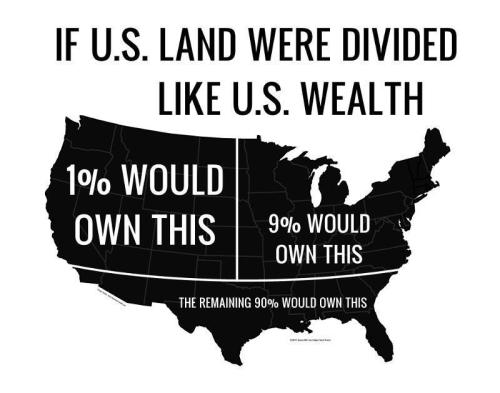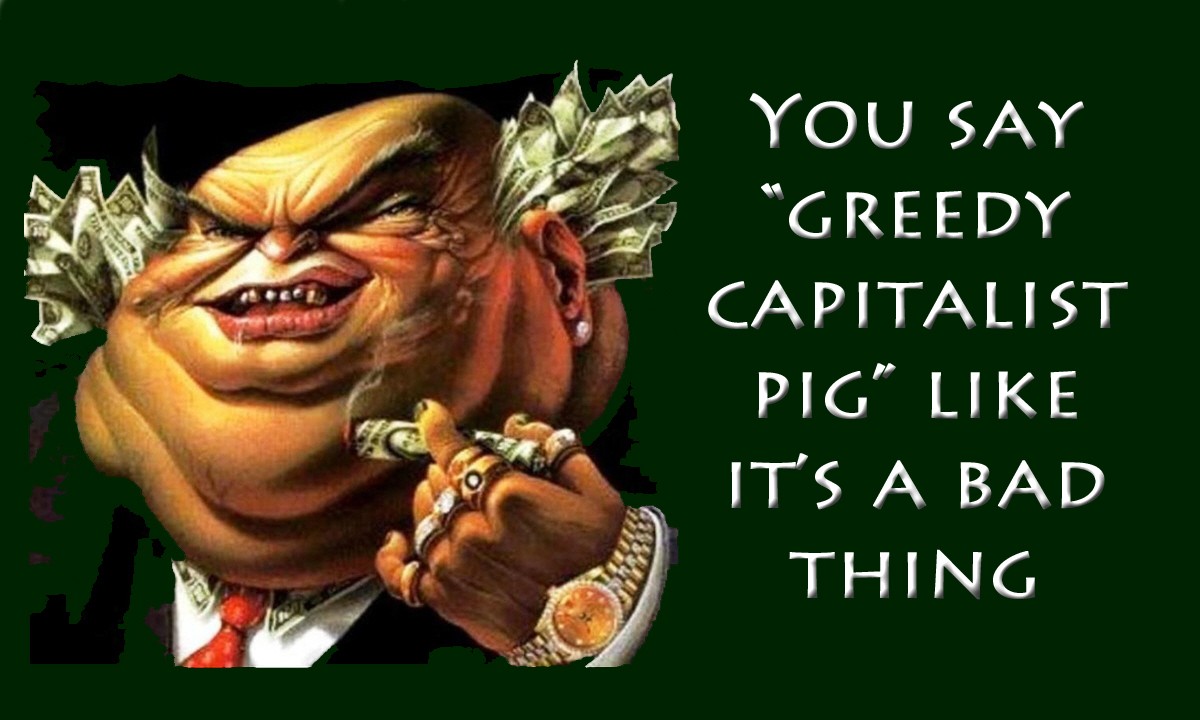
1.) Income disparity is the least of it. "It's about net worth, stupid." http://inequality.org/wealth-inequality
2.) Historically, inordinate wealth inequality is a fundament of political, cultural and economic decline.
Even if
the wealthy "deserve" all their possessions, radical wealth disparity
does not end well. http://paxonbothhouses.blogspot.com/2012/06/stiglitz-marketplace-and-fresh-air.html
3.) "Land Of The Free, Home Of The Poor"
4.) "Politics and Economics: The 101 Courses You Wish You Had"
5.) "Viral Video Examines Gap Between Super Rich And
Everyone Else. (Great Graphics! )"

Top 1% Takes Biggest Income Slice Ever!
The gulf between the richest 1% of the USA and the rest of the country got to its widest level in history last year.
The top 1% of earners in the U.S. pulled in 19.3% of total household income in 2012, which is their biggest slice of total income in more than 100 years, according to a an analysis by economists at the University of California, Berkeley and the Paris School of Economics at Oxford University.
The richest Americans haven't claimed this large of a slice of total wealth since 1927, when the group claimed 18.7%. The analysis is based on data from Internal Revenue Service data.
One of the economists behind the research, Emmanuel Saez of the University of California, Berkeley, is a top researcher in the topic of wealth and income inequality. He won the John Bates Clark medal last year. The Clark medal is awarded to the most promising economists under the age of 40. Past winners have includes Paul Krugman of Princeton University, Lawrence Summers and Steve Levitt, co-author of "Freakonomics."
In a separate analysis, Saez found the top 1% of earnings posted 86% real income growth between 1993 and 2000. Meanwhile, the real income growth of the bottom 99% of earnings rose 6.6%.
***

No comments:
Post a Comment